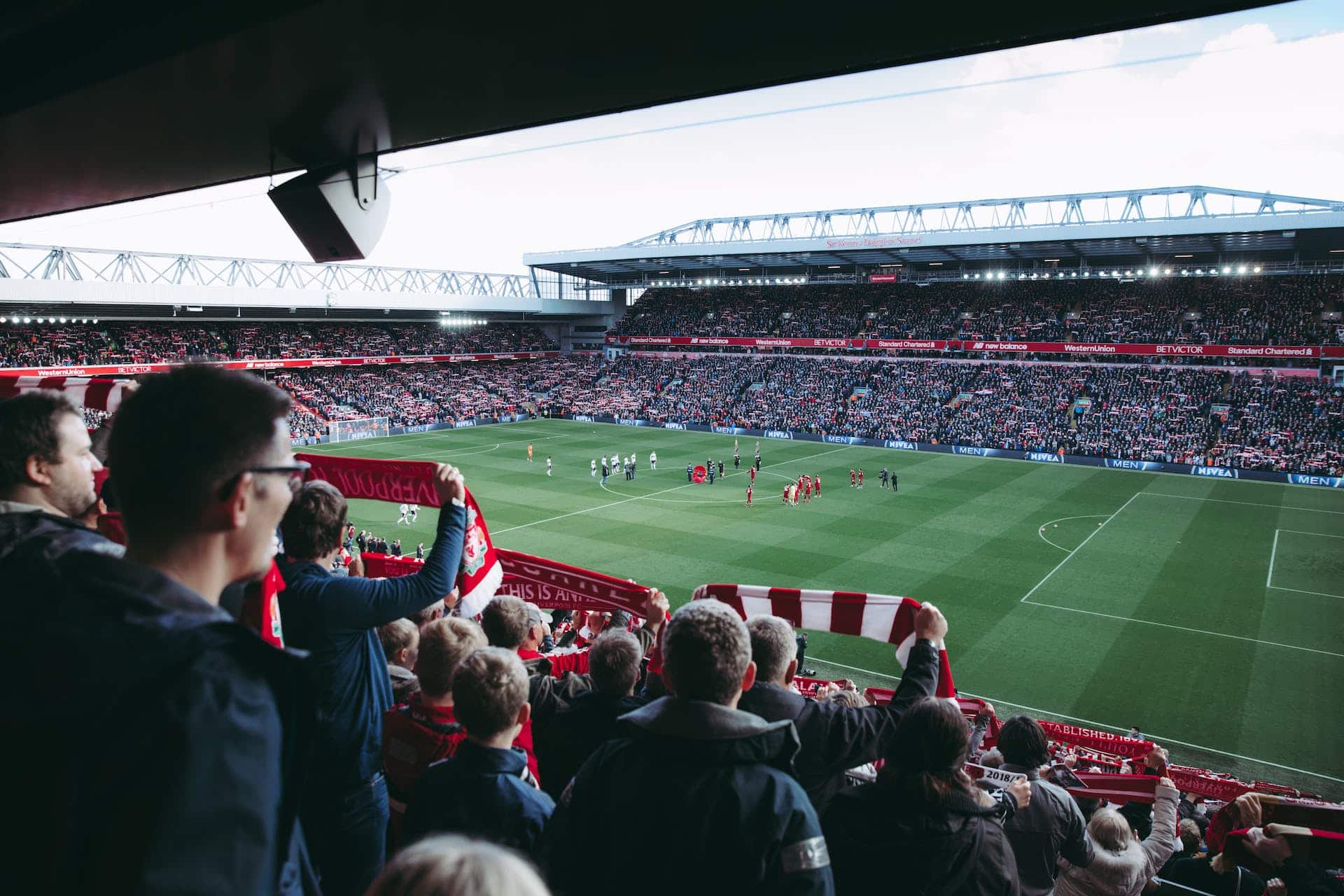What are the cultural traditions associated with sports in different regions of the world?

It’s a rare occurrence to find a global phenomenon that unites people as sports does. All over the world, in every culture, sports play a crucial role. The rules of the game are universal, but the traditions surrounding sports, from modern soccer to traditional games, are as varied as the nations they originate from. You will find that sports are intricately woven into the fabric of any culture, a reflection of the people’s history and identity. Let’s embark on a global journey to explore the diverse cultural traditions associated with sports in different regions of the world.
The Heartbeat of Samba: Football in Brazil
In Brazil, football is more than just a sport; it’s a way of life. As the country with the most World Cup victories, Brazil’s love for football runs deep. But what sets Brazilian football apart from the rest of the world is its unique blend of skill, artistry, and joy, a rhythm that pulses with the heartbeat of samba.
A lire aussi : How can sports be used as a tool for conflict resolution and peace-building in international relations?
The humble origins of Brazilian football lie in the streets and beaches, where children play barefoot with a makeshift ball. The style of play, often referred to as ‘samba football,’ is characterized by artistic flair and creativity. This culture of street football, where the emphasis is more on enjoying the game than winning or losing, has given football in Brazil its unique identity.
Carnaval do Futebol, or the Carnival of Football, is another cultural tradition unique to Brazil. Drawing parallels with the country’s famous Carnival, this event is a celebration of football, filled with music, dance, and a vibrant display of colors. It’s a testament to how deeply football is ingrained in Brazilian culture.
A lire aussi : How are sports venues designed to enhance the overall fan experience?
‘Bushido’ in the Modern Age: Sports in Japan
In Japan, the spirit of ‘Bushido,’ the way of the warrior, is embodied in every aspect of life, including sports. Traditional Japanese sports such as sumo wrestling and martial arts like judo and kendo bear the philosophical imprint of this ancient samurai code.
Sumo, a sport steeped in Shinto rituals, is a prime example of how sports are intertwined with culture in Japan. From the ceremonial salt-throwing to purify the ring, to the sacred attire worn by the wrestlers, each aspect of the sport is steeped in tradition.
In modern Japanese sports, the ethos of ‘Bushido’ is equally prominent. Whether it’s the national baseball team’s disciplined training regimen or the respectful bow exchanged between opponents in a tennis match, the principles of respect, discipline, and honor are clearly visible.
The Drumbeat of Warriors: Rugby in New Zealand
Nowhere else is the blend of sports and culture as intense as it is in New Zealand’s rugby scene. The country’s deep-rooted Maori heritage vividly manifests itself in the performance of the ‘haka,’ a traditional Maori war dance, before each game by the national rugby team, the All Blacks.
The ‘haka’ is not merely a pre-game ritual, it’s an integral part of New Zealand’s rugby culture, a symbol of unity, strength, and pride. The powerful chants and fierce movements are a display of respect to the opponents and a reminder of the team’s warrior ancestry.
From community level games to international matches, you can hear the echoes of the ‘haka,’ reverberating the proud Maori history and the cultural significance of rugby in New Zealand.
The Color of Passion: Football in Europe
European countries, with their rich history and diverse cultures, share a common love for football. The sport is an essential component of the cultural fabric in countries like England, Spain, Italy, and Germany, with traditions that have evolved over centuries.
In England, football has a close association with the working class, and matchday traditions reflect this heritage. From pub gatherings before the game to passionate crowd chants, the English football culture is a spectacle in itself.
In Spain, the ‘El Clasico,’ an annual football match between fierce rivals Real Madrid and Barcelona, is more than just a game. It’s a cultural event that reflects the historical, political, and cultural rivalries between the Catalan and Castilian regions.
A Melting Pot of Traditions: Sports in the United States
In the United States, sports are a reflection of the country’s multicultural heritage. Whether it’s the thrill of a college football game or the camaraderie at a baseball match, each sport carries a part of the American story.
The singing of the national anthem before the start of any sports event is a time-honored tradition. Another unique tradition is the seventh-inning stretch during a baseball game, where fans stand and stretch, often accompanied by a rendition of ‘Take Me Out to the Ball Game.’
Various cultural influences can be seen in American sports traditions. For example, the celebratory Gatorade shower, where players douse the coach with a cooler full of Gatorade after winning a game, is a tradition that originated in American football but has since spread to other sports.
Sports are more than just games. They are a vivid embodiment of a country’s culture, reflecting its history, values, and spirit. As we have seen, the cultural traditions associated with sports vary greatly across different regions of the world, enriching the global sports landscape with their unique flavors.
Graceful Strength: Muay Thai in Thailand
In Thailand, the sport of Muay Thai or Thai boxing, holds a revered place. Originating from the middle ages as a martial art used by Thai warriors, it has now evolved into a modern sport watched and loved by millions. Yet, it retains its cultural and spiritual roots, ensuring its place as a powerful symbol of Thai heritage.
Muay Thai is not just a sport, but a discipline that requires physical and mental strength. It’s affectionately known as the ‘Art of Eight Limbs,’ as it employs the use of hands, feet, elbows, and knees. More than the physical moves, it’s the grace, poise, and respect shown by the fighters that truly encapsulate the soul of this sport.
The sport begins with the ‘Wai Kru,’ a ritual dance where fighters pay respect to their trainers. This ritualistic dance is as significant as the fight itself, imbued with spiritual meaning and displaying the deep respect Thai culture holds for teachers and elders.
Muay Thai is also accompanied by traditional music, played on the Pi Java – a type of oboe, and drums. The tempo of the music increases as the fight intensifies, adding to the excitement and anticipation of the spectators. It’s not just a fight, but a performance—an embodiment of Thailand’s history, tradition, and cultural heritage.
Winter Pride: Skiing in Norway
In Norway, skiing is more than a sport—it’s a vital part of the cultural heritage. With a history dating back to ancient times, skiing holds a special place in the heart of every Norwegian. The country’s diverse and scenic landscape contributes to the popularity of skiing. It’s a sport that truly showcases the Norwegian spirit—resilient, adventurous, and in harmony with nature.
The phrase "Norwegians are born with skis on their feet" is often used to describe their inherent love for skiing. This tradition starts from a young age, with parents teaching their children to ski as soon as they can walk. It’s a sport that unites families and communities, embodying the values of camaraderie and collective consultation that are integral to Norwegian culture.
Skiing in Norway is not limited to the winter months alone. The Norwegian saying "there’s no such thing as bad weather, only bad clothing" rings particularly true when it comes to skiing. Thanks to indoor ski arenas and roller skis, it’s a year-round pastime.
At the heart of Norway’s skiing culture is the Holmenkollen Ski Festival, an annual event that attracts enthusiasts from around the world. It’s a celebration of the sport that includes a variety of competitions, from cross-country skiing to the thrilling ski jumping.
From the traditional sports of Muay Thai and skiing to the modern sports of football and rugby, it’s clear how deeply sports culture is woven into the fabric of societies worldwide.
Conclusion: A World United by Sports
Whether it’s the samba-infused football celebrations in Brazil, the disciplined ethos of ‘Bushido’ in Japanese sports, the powerful Maori ‘haka’ in New Zealand’s rugby, the class-covered football culture in Europe, or the multicultural sports scene in the United States—each region has unique traditions that define their sports culture.
In Thailand, the graceful strength of Muay Thai reflects the history and spirit of its people, while in Norway, the love for skiing echoes the nation’s resilience and harmony with nature. Sports are not just competitions; they are a mirror to a country’s past, a reflection of its present, and a bond that holds the promise of a united future.
The richness of these traditions adds a unique flavor to the sports world. From the ancient ball games to the modern-day Olympics, sports have continually brought people together, transcending boundaries and differences. The world cup victories, Olympic medals, and local championships are not just victories for the teams, but for their countries and culture, celebrated with pride and joy.
As we journey through the world of sports, it’s evident that sports are an expression of our collective humanity, a testament to our shared love for competition, camaraderie, and celebration. From the heartbeats of samba to the drumbeats of warriors, from the graceful strength of Muay Thai to the thrill of skiing in Norway, sports bring us together, uniting us in a world often divided.
In the end, it’s not just about the game, but about the people, the culture, and the traditions that make the game what it is. Sports are indeed a global phenomenon, a universal language that stirs the heart and stirs the soul. As we celebrate our diverse sports traditions, we celebrate our shared humanity, and that makes the world a richer, more vibrant place.
